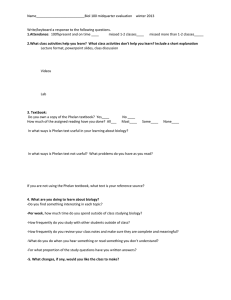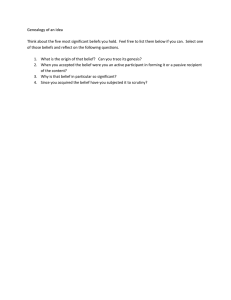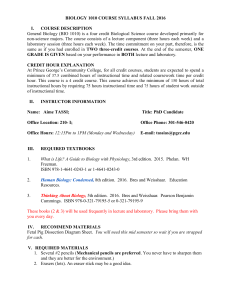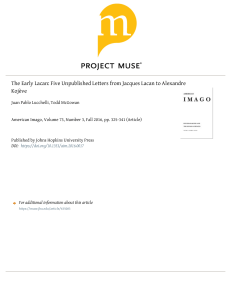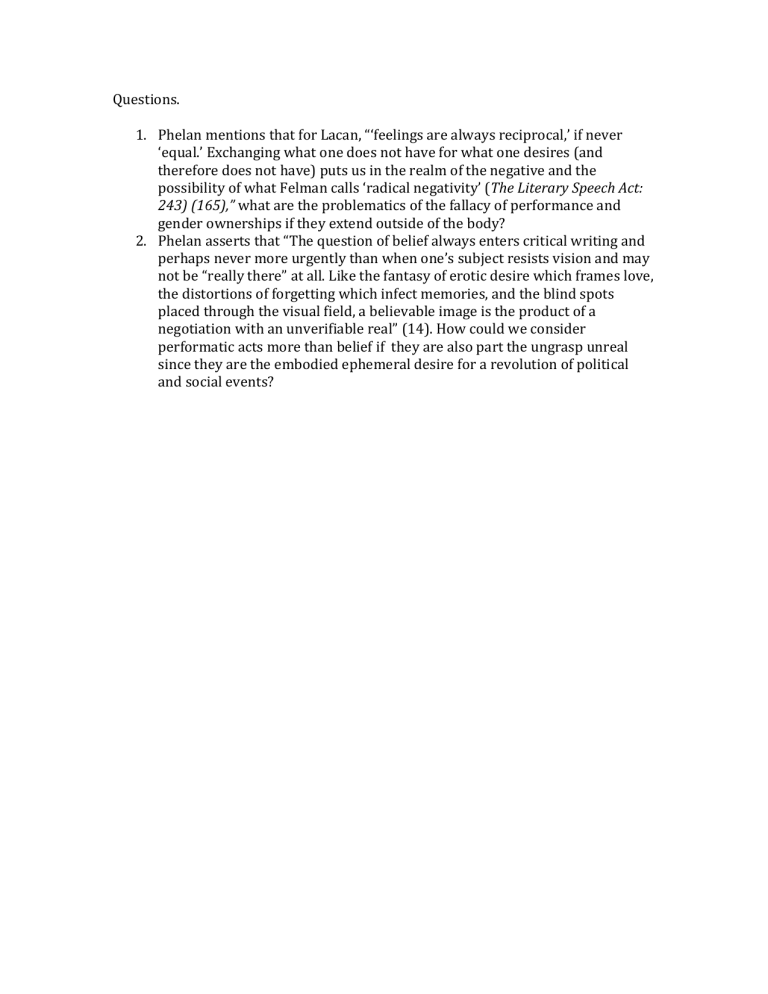
Questions. 1. Phelan mentions that for Lacan, “‘feelings are always reciprocal,’ if never ‘equal.’ Exchanging what one does not have for what one desires (and therefore does not have) puts us in the realm of the negative and the possibility of what Felman calls ‘radical negativity’ (The Literary Speech Act: 243) (165),” what are the problematics of the fallacy of performance and gender ownerships if they extend outside of the body? 2. Phelan asserts that “The question of belief always enters critical writing and perhaps never more urgently than when one’s subject resists vision and may not be “really there” at all. Like the fantasy of erotic desire which frames love, the distortions of forgetting which infect memories, and the blind spots placed through the visual field, a believable image is the product of a negotiation with an unverifiable real” (14). How could we consider performatic acts more than belief if they are also part the ungrasp unreal since they are the embodied ephemeral desire for a revolution of political and social events?
